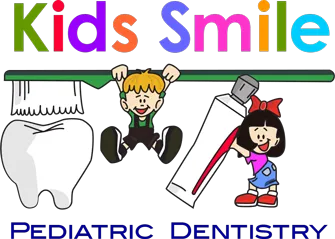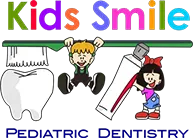Nitrous Oxide
Conscious Sedation
Outpatient General Anesthesia
Medicaid Services
LASER therapy to correct Lip and Tongue Tie
Nitrous Oxide
Some children are given nitrous oxide/oxygen, or what you may know as laughing gas, to relax them for their dental treatment. Nitrous oxide/oxygen is a blend of two gases, oxygen and nitrous oxide. Nitrous oxide/oxygen is given through a small breathing mask which is placed over the child’s nose, allowing them to relax, but without putting them to sleep. The American Academy of Pediatric Dentistry, recognizes this technique as a very safe, effective technique to use for treating children’s dental needs. The gas is mild, easily taken, then with normal breathing, it is quickly eliminated from the body. It is non-addictive. While inhaling nitrous oxide/oxygen, your child remains fully conscious and keeps all natural reflexes.
Prior to your appointment:
- Please inform us of any change to your child’s health and/or medical condition.
- Tell us about any respiratory condition that makes breathing through the nose difficult for your child. It may limit the effectiveness of the nitrous oxide/oxygen.
- Let us know if your child is taking any medication on the day of the appointment.
Conscious Sedation
Conscious Sedation is recommended for apprehensive children, very young children, and children with special needs. It is used to calm your child and to reduce the anxiety or discomfort associated with dental treatments. Your child may be quite drowsy, and may even fall asleep, but they will not become unconscious.
There are a variety of different medications, which can be used for conscious sedation. The doctor will prescribe the medication best suited for your child’s overall health and dental treatment recommendations. We will be happy to answer any questions you might have concerning the specific drugs we plan to give to your child.
Prior to your appointment:
- Please notify us of any change in your child’s health and/or medical condition. Do not bring your child for treatment with a fever, ear infection or cold. Should your child become ill, contact us to see if it is necessary to postpone the appointment.
- You must tell the doctor of any drugs that your child is currently taking and any drug reactions and/or change in medical history.
- Please dress your child in loose fitting, comfortable clothing.
- Please make sure that your child goes to the bathroom immediately prior to arriving at the office.
- Your child should not have solid food or any liquids for at least 8 hours prior to their sedation appointment.
- One Parent is always welcome to be in the room when treatment is performed.
- Please watch your child closely while the medication is taking effect. Hold them in your lap or keep close to you. Do not let them "run around."
- Your child will act drowsy and may become slightly excited at first.
After the sedation appointment:
- Your child will be drowsy and will need to be monitored very closely. Keep your child away from areas of potential harm.
- If your child wants to sleep, place them on their side with their chin up. Wake your child every hour and encourage them to have something to drink in order to prevent dehydration. At first it is best to give your child sips of clear liquids to prevent nausea. The first meal should be light and easily digestible.
- If your child vomits, help them bend over and turn their head to the side to insure that they do not inhale the vomit.
- Because we use local anesthetic to numb your child’s mouth during the procedure, your child may have the tendency to bite or chew their lips, cheeks, and/or tongue and/or rub and scratch their face after treatment. Please observe your child carefully to prevent any injury to these areas.
- Please call our office for any questions or concerns that you might have.
Outpatient General Anesthesia
Outpatient General Anesthesia is recommended for apprehensive children, very young children, and children with special needs that would not work well under conscious sedation or I.V. sedation. General anesthesia renders your child completely asleep. This would be the same as if he/she was having their tonsils removed, ear tubes, or hernia repaired. This is performed in a hospital or outpatient setting only. The risks of NO treatment include tooth pain, infection, swelling, the spread of new decay, damage to their developing adult teeth and possible life threatening hospitalization from a dental infection.
Prior to your appointment:
- Please notify us of any change in your child’s health. Do not bring your child for treatment with a fever, ear infection or cold. Should your child become ill, contact us to see if it is necessary to postpone the appointment.
- You must tell the doctor of any drugs that your child is currently taking and any drug reactions and/or change in medical history.
- Please dress your child in loose fitting, comfortable clothing.
- Your child should not have milk or solid food after midnight prior to the scheduled procedure and clear liquids ONLY (water, apple juice, Gatorade) for up to 6 hours prior to the appointment.
- The child’s parent or legal guardian must remain at the hospital or surgical site waiting room during the complete procedure.
After the appointment:
- Your child will be drowsy and will need to be monitored very closely. Keep your child away from areas of potential harm.
- If your child wants to sleep, place them on their side with their chin up. Wake your child every hour and encourage them to have something to drink in order to prevent dehydration. At first it is best to give your child sips of clear liquids to prevent nausea. The first meal should be light and easily digestible.
- If your child vomits, help them bend over and turn their head to the side to insure that they do not inhale the vomit.
- Prior to leaving the hospital/outpatient center, you will be given a detailed list of "Post-Op Instructions" and an emergency contact number if needed.
Medicaid management companies
MCNA: http://www.mcnatx.net/welcome
DentaQuest: http://www.dentaquesttexas.com/en/home.php
Click on one of the links above and search for Dr. Marcushamer.
LASER therapy to correct Lip and Tongue Tie
Lip Tie
Lip ties impact children by restricting natural lip development and function. The upper lip plays a vital role in feeding, speech, breathing and arch development. We invite you to bring your child at any age for a consultation. Remember, earlier treatment will help your child grow with minimal impact on their facial anatomy.
Before After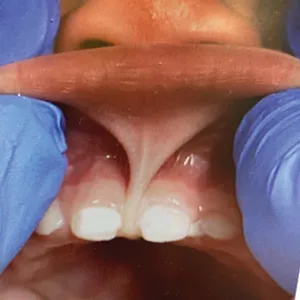
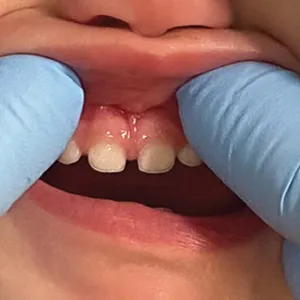
Tongue Tie
Strong restrictive lingual frenums "Tongue ties" impact children by altering natural oral airway, arch development and function. Also plays a vital role in the development of feeding and speech.
Before After
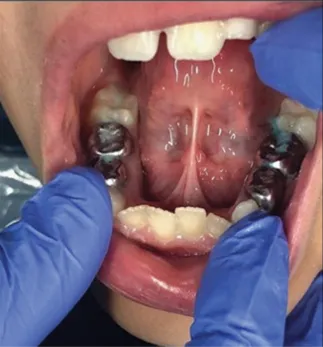
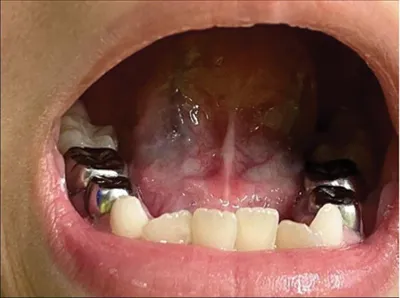
Early correction of both lip and tongue ties can make breast feeding less painful, minimize colic and optimize nutrition.
